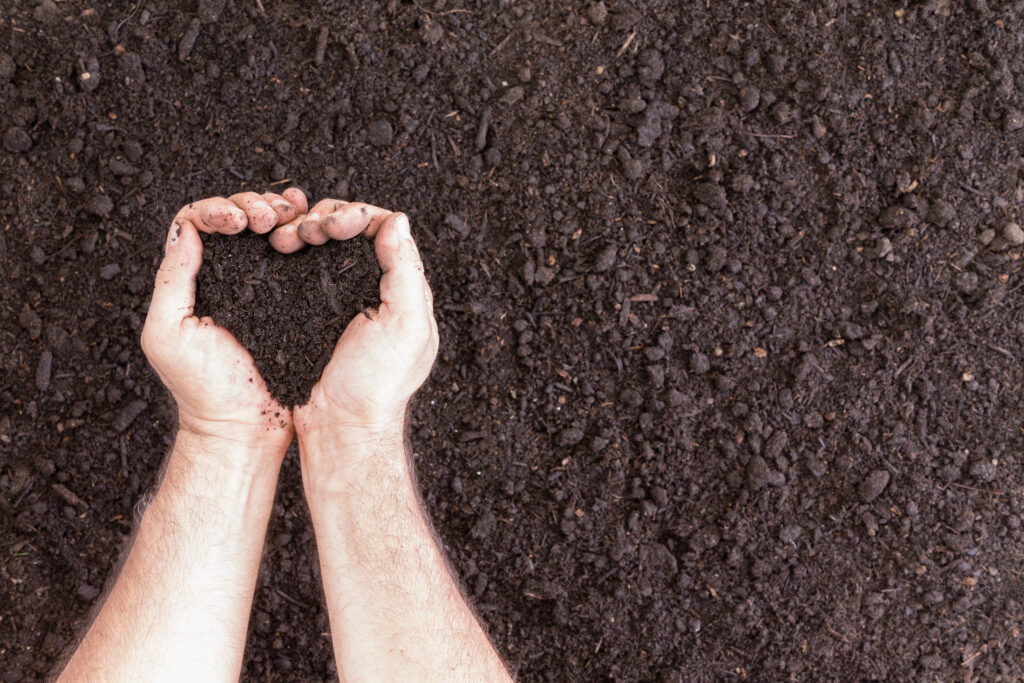
Every garden’s soil has a pH level. You can work with different pH levels using different plants. However, you have to know where you’re starting. And in some instances, you might want to change the pH level. For example, if your soil is too alkaline for the plants you want to grow, then you need to add acid. Luckily, there are cheap ways to make soil more acidic.
Why You Might Make Soil More Acidic
Your garden soil might be alkaline, neutral, or acidic. None is necessarily better than the other overall. However, different plants have different needs. Therefore, you might need to make your soil more acidic in order to best grow the plants that you want to grow in your garden.
Rural Sprout notes that you might add acidity in order to:
- Improve nutrient consumption by your plants, making them healthier
- To change a specific plant’s color; for example, to turn hydrangea plants blue
- To grow specific plants that only grow well in more acidic soil
Cheap Ways To Make Soil More Acidic
Rural Sprout also notes that it’s easier to choose the right plants for your soil than to change your soil. In other words, if you have alkaline soil, then choose plants that love that. However, you don’t have to settle for this if you don’t want to. You can, instead, find cheap ways to make soil more acidic.
Use Diluted White Vinegar to Acidify Soil
YardKidz notes that vinegar is one of the fastest cheap ways to make soil more acidic. You use distilled white vinegar to increase the acid in your garden soil. You can add it to the water that you use to water your garden, whether that’s through an irrigation system or a watering jug. In addition to acidifying the soil, adding vinegar has other benefits. For example, it is a great form of natural pest control.
Add Coffee Grounds to Soil
YardKidz adds that coffee grounds are another cheap and quick way to acidify your garden soil. Note, though, that you have to use fresh coffee grounds. Ones you’ve already used to make coffee don’t have an extreme enough pH level to acidify your garden. So, yes, this is a cheap option, but it’s not the same as recycling your used coffee grounds for free.
Add Compost to Garden Soil
Rural Sprout points out, however, that adding compost to your soil can help acidify it over time. Therefore, if you add your used coffee grounds to your compost, then they do work in this way. This method is slower and less effective than the vinegar or fresh coffee grounds. Often, it’s used to make an alkaline soil more neutral rather than specifically acidic.
However, you can increase the acidity of your compost by being selective about what you add to it. Choose acidic ingredients including citrus rinds, oak leaves, or pine needles.
Pine Needle Mulch
Speaking of pine needles, Rural Sprout also notes that you can use these, oak leaves, and other acidic leaves to create your own mulch. Add this over your soil to acidify it.
Citrus Watering Your Soil
And speaking of citrus rinds, use them liberally in your garden to acidify the soil. You can also add citrus to your watering process. For example, add lemon juice to your watering can to improve soil acidity.
More Ways to Acidify Soil
Happy DIY Home explores some of the pros and cons of some of the above methods as well as other ways to acidify soil including:
- Sphagnum Peat Moss
- Elemental Sulfur
- Acidifying Fertilizers
- Iron Sulfate
- Aluminum Sulfate
- Natural Liquid Plant Feeds
Read More:
- 5 Reasons to Use Fish Amino Acid on Your Plants
- 8 Uses of Baking Soda in Garden
- What Is The Best Growing Medium for Basil?
Kathryn Vercillo is a long time writer, crafter and author of several books. A resident of San Francisco, she is committed to helping others explore, articulate and share their own individuals stories. When she’s not evaluating investing opportunities Kathryn is an avid knitter, researcher, and blogger.
Leave a Reply